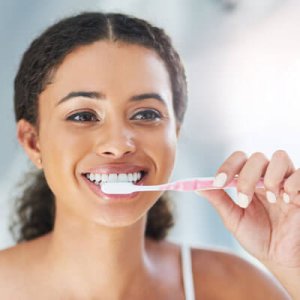 As one of the most common procedures performed in dental offices worldwide, dental fillings not only treat cavities but also restore teeth to good health. After getting a filling, however, many patients wonder about the right approach to dental care, particularly when it comes to brushing.
As one of the most common procedures performed in dental offices worldwide, dental fillings not only treat cavities but also restore teeth to good health. After getting a filling, however, many patients wonder about the right approach to dental care, particularly when it comes to brushing.
Proper aftercare is indeed crucial to ensure the filling sets well and to maintain overall oral health.
The short answer is yes, you can brush your teeth after a filling. However, it’s essential to be gentle and mindful, particularly in the first 24 hours post-procedure. Your dentist might provide specific instructions based on the type of filling and your individual situation.
For example, composite fillings harden quickly with the help of a curing light, which means you can resume brushing soon after the procedure. However, if you experience sensitivity or soreness, you may want to temporarily adjust your technique.
When to Start Brushing After a Filling
You can usually get back to brushing your teeth the same day as your filling. If your dentist has given you no specific restrictions, it’s safe to carefully clean your teeth once the numbness from the procedure wears off. Brushing too soon while still numb might result in accidental injury to your cheeks or gums.
The Importance of Brushing Carefully
Here are some tips for brushing after a filling to avoid discomfort or damage:
- Use a Soft-Bristled Toothbrush: This helps minimise pressure on sensitive teeth and gums.
- Avoid Direct Pressure: When brushing near the filled tooth, be gentle and avoid vigorous scrubbing.
- Be Mindful of Your Technique: Use small, circular motions to clean the area without irritating it.
- Consider a Desensitising Toothpaste: If your tooth feels sensitive after the filling, a toothpaste designed for sensitive teeth can provide relief.
Why Maintaining Oral Hygiene Is Essential
Even after getting a filling, it’s important to prioritise your oral hygiene routine to prevent further cavities and keep your teeth strong. Brush twice a day, floss daily, and use an antibacterial mouthwash to reduce plaque and bacteria buildup. Regular dental check-ups will also help catch any potential issues early.
What to Do If Discomfort Persists
It’s normal to experience mild sensitivity or soreness after a filling, especially when eating or drinking hot or cold foods. Fortunately, this sensitivity usually resolves within a few days. If the discomfort lasts for more than a week, or if you experience sharp pain or difficulty chewing, contact your dentist. There may be an issue with the filling that needs adjustment.
Caring for your teeth after a filling doesn’t have to be complicated. By brushing gently and maintaining good oral hygiene habits, you’ll protect your dental health and reduce the likelihood of future issues. If you have any concerns, please contact Pinnacle Dental today for personalised advice.
CONTACT US
Any invasive or surgical procedure may carry risks. Before moving forward, it is recommended that you seek a second opinion from an appropriately licensed medical professional.
